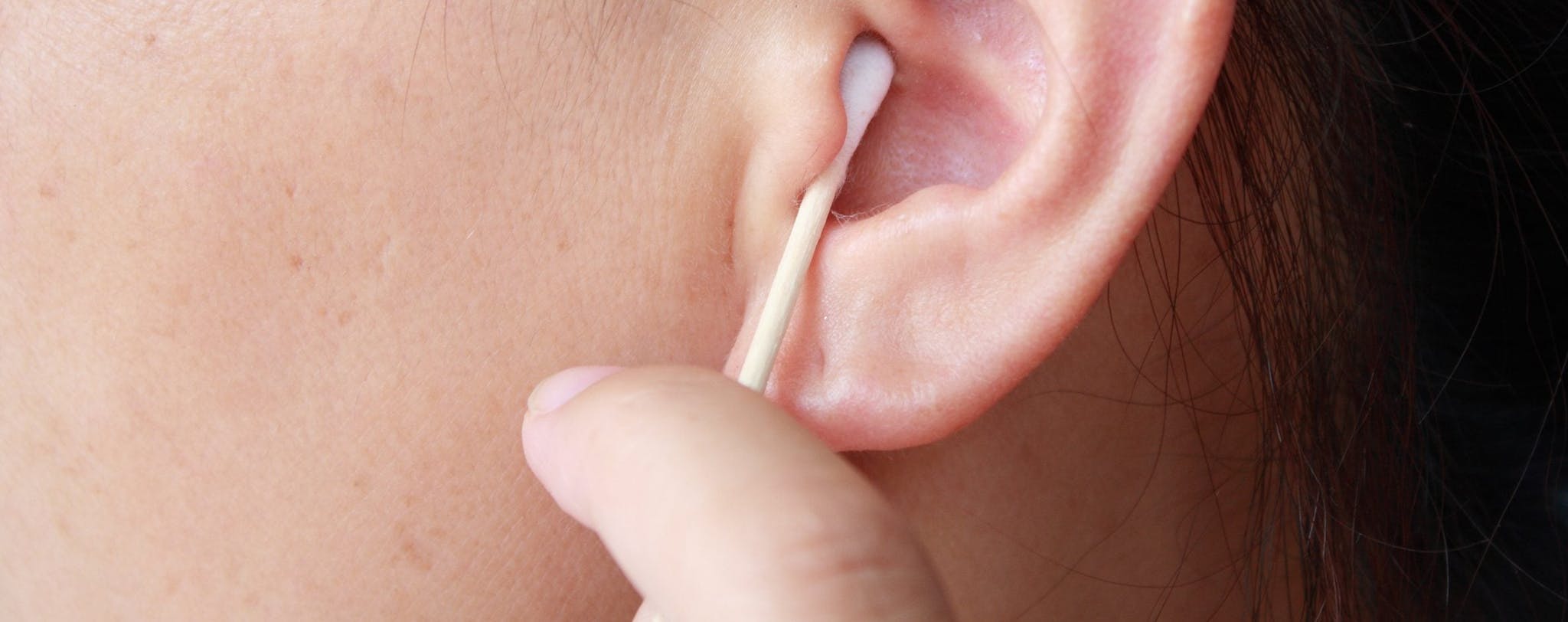
April 9, 2024
The Health Benefits of Stress Management
- Behavioral Health
May 27, 2016 | Ear, Nose, Throat

Hearing loss might have been on Greek historian Herodotus’ mind when he remarked, “Men trust their ears less than their eyes.”
For those who suffer from it, hearing loss is no laughing matter. It affects around 48 million Americans – one out of every five – to some degree, the Hearing Loss Association of America reports. You probably associate hearing loss with aging. However, it could be due to something the body produces naturally: ear wax.
Your ears naturally produce ear wax to clean, protect, and lubricate themselves. This wax, also known as cerumen, is the product of wax glands in the outer portion of the ear canal. It consists of 20 to 50 percent fat, according to Everyday Health, and dead skin cells shed by the ear canal.
Hearing loss affects around 48 million Americans – one out of every five – to some degree, according to the Hearing Loss Association of America.
Once ear wax has accomplished its mission, it usually dries up, migrates to the ear canal, and eventually falls out of the ear. However, some people produce more wax than average, causing an accumulation and problems.
Even one of these symptoms signals the need for an exam by a physician. They could be linked to a large accumulation of wax called cerumen impaction.
Ideally, your ear canals should never need to be cleaned, says the American Academy of Otolaryngology. However, when you experience wax buildup symptoms, it’s time to clean.
When you attempt to clean ear wax with probes like cotton swabs, twisted napkin corners, or hairpins, you’ll probably just push the wax in even deeper. This might cause a blockage against your eardrum.
Your ear canals should never need to be cleaned, according to the American Academy of Otolaryngology.
If you do opt to self-clean, start by washing your external ear with a cloth and avoid inserting anything into your ear canal. The idea behind successful home treatment is to soften the wax. Acceptable methods include using:
An irrigation kit includes a syringe. Any home treatment is most effective when liquids or dissolving drops are inserted in the ear canal for 15 to 30 minutes first. However, you should avoid home irrigation if you suffer from any of these conditions:
Many people try to clean ear wax with candling. Prevention says this involves inserting a hollowed-out candle into the ear, lighting the candle, and counting on suction created to pull out the accumulated ear wax. You should steer clear of candling since it could burn your ear drum or cause candle wax to become stuck inside your ear.
Ear, nose, and throat (ENT) specialists are also called otolaryngologists. These doctors treat conditions that affect the ears, nose, larynx, throat, and structures of the face and neck. Common issues include hearing loss, sinus and ear infections, balance, dizziness, and voice issues. The American Academy of Otolaryngology reports that these physicians complete as many at 15 years of college and post-graduate education before practicing. When looking for a specialist, check for certification by the American Board of Otolaryngology.
Revere Health ENTs treat both adults and children. Many experts suggest seeing an ENT doctor for ear cleaning every 6 to 12 months if you’re one of those people whose ears produce an abundance of wax. To resolve your ear wax or other ENT issues, call today to schedule a consultation. You’ll love the comprehensive, patient-centered care you receive for both primary and specialty services.
WRITTEN BY:
The Live Better Team


April 9, 2024

March 22, 2024

February 12, 2024

February 6, 2024
This information is not intended to replace the advice of a medical professional. You should always consult your doctor before making decisions about your health.